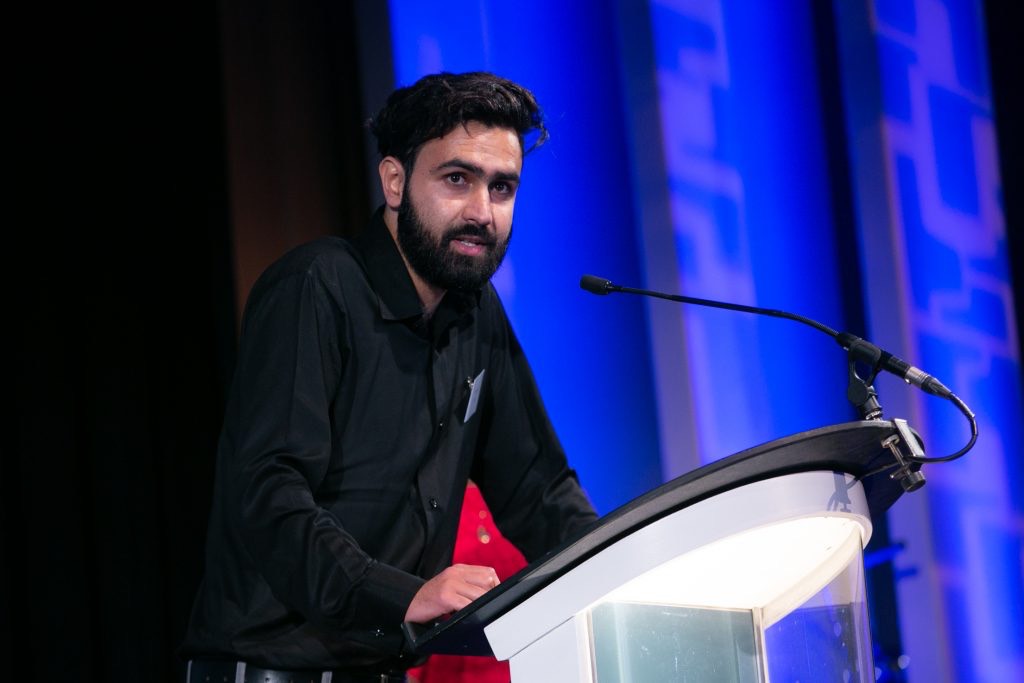The following is an installment of our periodic series covering the work of journalists who have received grants from the OPC.
by Chad Bouchard
Bhat Burhan, a Kashmiri multimedia journalist now based in New Delhi, grew up in a region steeped in decades of armed conflict. Inspired by the dedication of local journalists covering the conflicts in the face of government crackdowns, he saw a need for reporting in Kashmir by Kashmiris.
“If I will not tell the story of this place, then someone else will,” he said. “During a crisis a lot of stories disappear. It’s where a local journalist, particularly the one who knows the story of the place and is a part of that story, has a responsibility.”
Burhan lived through three major civilian uprisings in 2008, 2010 and 2016 followed by a crackdown in 2019, when he said the Indian government blocked communication and civilian movement in Kashmir for months.
“I have witnessed killings of thousands of militants, civilians and others for resisting Indian rule. I have seen fellow journalists being harassed, beaten and arrested for merely doing their job,” he said.
Burhan said since 2019, the government crackdown against journalists and critics has pushed journalists into a defensive position, and in some cases “it gave rise to public relations practitioners disguised as journalists making it more difficult for journalists who want to tell the story of Kashmir and Kashmiris.”
In 2021, Burhan was among the 92 recipients of an OPC COVID-19 micro-grant of $1,000, which was funded by the Ford Foundation. He said the grant was a “lifeline” during the pandemic.
“It helped me in a lot of ways — one was by providing me with financial support to go out in the pandemic and report about the deadly virus. I reported so many different stories about the pandemic and its aftermath on people in India. I could not have done it without the support from OPC,” he said.
Burhan said stories he’s drawn to report on most are about the effects of crises on people and holding power to account.
He is particularly proud of two recent stories. In February 2022, he followed healthcare workers across snow-covered mountains in the Himalayas to remote villages in Kashmir and Jammu to vaccinate residents.
“They spent the entire day crossing the routes, walking and trekking. I reported and filmed their difficult journey during that time when temperature had dipped to minus five degree Celsius,” he said. He won the 2022 Rory Peck Trust Award for that story.
In 2021, he was covering farmer protests in Punjab after new laws deregulated agriculture trade, threatening livelihoods amid an epidemic of farmer suicides.He was on assignment for Business Insider with his colleague, Fahad Shah. After they filed their reports, as they were returning to Kashmir both were detained by local police and questioned for hours about their work and their video footage and photos were checked.
“Whenever I see work of ours from that assignment I feel immensely proud,” he said. “I feel it necessary to mention that Fahad Shah currently is in jail for his reporting on Kashmir. He was arrested on February 4 last year.”
He said when reporting on conflict and disasters, it’s important for every journalist to strike a balance between personal safety and the needs of the story.
“I have mostly worked with international media who always prioritize safety the most,” Burhan said. “I calculate every risk that can compromise my safety while reporting. It’s important to stay prepared and aware of a way out if things go wrong. Burhan’s work can be seen in The Diplomat, the Christian Science Monitor, Business Insider, Nikkei Asia, VICE News, among other international media outlets. His handle on social media is @bhattburhan02.

